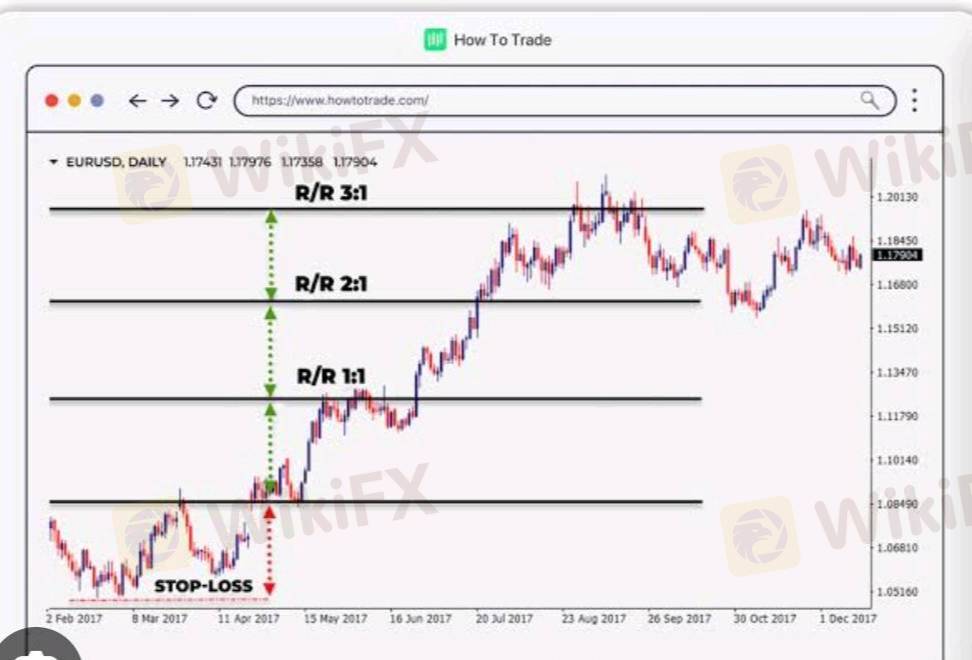
2025-02-06 04:04
A l'instar de l'industrieFollow a risk reward ratio in forex trading.
#firstdealofthenewyearAKEEL
The risk-reward ratio (R:R) is a critical concept in forex trading, helping traders assess the potential reward for every unit of risk they take. Here's a guide to following an effective risk-reward ratio:
1.Define the Risk-Reward Ratio
The risk is the amount you're willing to lose on a trade.
The reward is the potential profit you're aiming to achieve.
A common ratio is 1:2, meaning for every $1 risked, you aim to make $2.
2.Set Your Stop-Loss and Take-Profit Levels
Use a stop-loss to limit your potential loss.
Set a realistic take-profit target based on market conditions and analysis.
Ensure the distance between your entry point and take-profit level is at least twice the distance to your stop-loss for a 1:2 ratio.
3.Analyze Market Conditions
Identify key support and resistance levels to place your stop-loss and take-profit.
Ensure the potential reward is achievable based on the market's volatility and trend.
4.Avoid Chasing Trades
Do not enter trades where the risk-reward ratio doesn't meet your criteria, even if the trade looks promising.
Be disciplined in rejecting trades that fall below your target ratio.
5.Use Consistent Position Sizing
Never risk more than 1-2% of your trading account on a single trade.
Adjust your lot size based on the stop-loss distance and your risk percentage.
6.Review and Adjust as Needed
Analyze your trading journal to ensure you're consistently following your risk-reward ratio.
Fine-tune your strategy if the ratio is not yielding expected results in specific market conditions.
Examples of Risk-Reward Ratios
1:1 - Minimum acceptable for some strategies but provides little margin for error.
1:2 - Common standard, balancing risk and reward.
1:3 or higher - Preferred for trend-following strategies but may require more patience.
By adhering to a sound risk-reward ratio, you can minimize losses, maximize profits, and maintain long-term profitability in forex trading.
#firstdealofthenewyearAKEEL
J'aime 0
Mky9196
Trader
Discussions recherchées
A l'instar de l'industrie
WikiFX recrute: Un(e) spécialiste e-marketing Forex à temps partiel
A l'instar de l'industrie
Tirages au sort WikiFX - Tentez votre chance pour gagner un crédit d’appel !
A l'instar de l'industrie
WikiFX recrute un(e) spécialiste marketing
A l'instar de l'industrie
Chemin à la fortune : Indications de l'activité Airdrop WikiBit
Analyse de marché
construction
A l'instar de l'industrie
Route à la Fortune : Indications de l'activité Airdrop Spécial WikiBit
Catégorisation des marchés

Plateformes

Signalement

Agents

Recrutement

EA

A l'instar de l'industrie

Marché

Indicateur
Follow a risk reward ratio in forex trading.
 Nigeria | 2025-02-06 04:04
Nigeria | 2025-02-06 04:04#firstdealofthenewyearAKEEL
The risk-reward ratio (R:R) is a critical concept in forex trading, helping traders assess the potential reward for every unit of risk they take. Here's a guide to following an effective risk-reward ratio:
1.Define the Risk-Reward Ratio
The risk is the amount you're willing to lose on a trade.
The reward is the potential profit you're aiming to achieve.
A common ratio is 1:2, meaning for every $1 risked, you aim to make $2.
2.Set Your Stop-Loss and Take-Profit Levels
Use a stop-loss to limit your potential loss.
Set a realistic take-profit target based on market conditions and analysis.
Ensure the distance between your entry point and take-profit level is at least twice the distance to your stop-loss for a 1:2 ratio.
3.Analyze Market Conditions
Identify key support and resistance levels to place your stop-loss and take-profit.
Ensure the potential reward is achievable based on the market's volatility and trend.
4.Avoid Chasing Trades
Do not enter trades where the risk-reward ratio doesn't meet your criteria, even if the trade looks promising.
Be disciplined in rejecting trades that fall below your target ratio.
5.Use Consistent Position Sizing
Never risk more than 1-2% of your trading account on a single trade.
Adjust your lot size based on the stop-loss distance and your risk percentage.
6.Review and Adjust as Needed
Analyze your trading journal to ensure you're consistently following your risk-reward ratio.
Fine-tune your strategy if the ratio is not yielding expected results in specific market conditions.
Examples of Risk-Reward Ratios
1:1 - Minimum acceptable for some strategies but provides little margin for error.
1:2 - Common standard, balancing risk and reward.
1:3 or higher - Preferred for trend-following strategies but may require more patience.
By adhering to a sound risk-reward ratio, you can minimize losses, maximize profits, and maintain long-term profitability in forex trading.
#firstdealofthenewyearAKEEL
J'aime 0
Je veux faire un commentaire aussi.
Poser une question
0commentaires

Aucun commentaire pour l'instant. Soyez le premier de faire un commentaire !

Poser une question
Aucun commentaire pour l'instant. Soyez le premier de faire un commentaire !